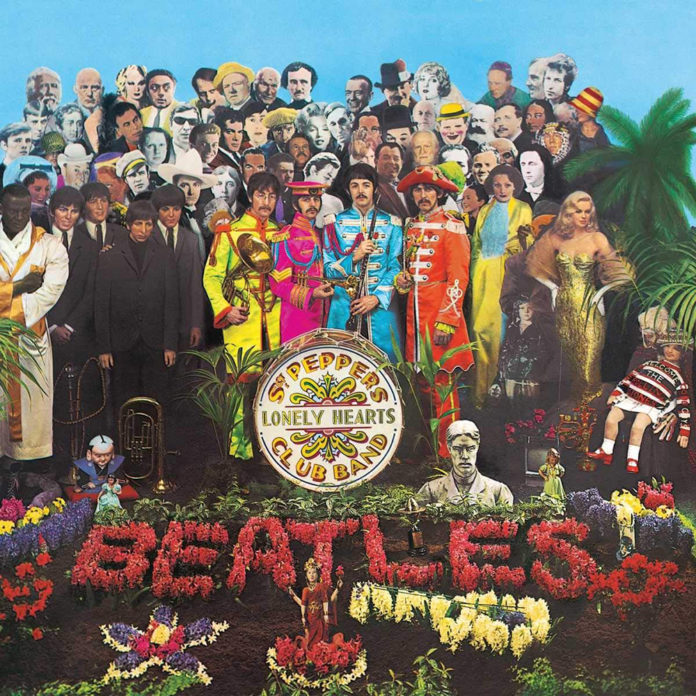The Beatles’ Sgt. Pepper’s Lonely Hearts Club Band is often hailed as a defining moment in music history, setting new standards for sound, concept, and visual presentation. Yet beyond the celebrated songs and iconic cover art, the album is filled with intriguing details and groundbreaking choices that went on to shape the world of music and pop culture. Here are five lesser-known facts about Sgt. Pepper that reveal just how innovative the Beatles were.
- The Album Concept Began Mid-Flight
Paul McCartney conceived the idea of an “Edwardian military band” during a flight back from Kenya, inspired by the era’s colorful style and charm. This vision evolved into the fictional “Sgt. Pepper” band, which granted the Beatles a playful freedom to experiment musically, taking them beyond their established image. - The Real Sound of Psychedelia
Inspired by the experimental sounds of artists like John Cage and Karlheinz Stockhausen, the Beatles and producer George Martin incorporated innovative studio effects like tape manipulation, ambiophonics, and direct injection recording. Tracks like “Lucy in the Sky with Diamonds” showcase their unique blend of sound design and psychedelia. - An Expensive and Iconic Album Cover
The Sgt. Pepper cover cost nearly £3,000, a groundbreaking expense for an album cover at the time. Designed by Peter Blake and Jann Haworth, it featured a vibrant collage of influential figures, including Bob Dylan, Karl Marx, and Oscar Wilde, reflecting the Beatles’ cultural awareness and impact. - An Accidental Experiment with Dog Whistles
As a final quirky addition, John Lennon suggested adding a 15 kHz tone at the end of the album to amuse (or perhaps annoy) dogs. This high-pitched sound, inaudible to most humans, made Sgt. Pepper not only a feast for human ears but also an unexpected curiosity for canine listeners. - The First Rock Album to Print Lyrics on the Back Cover
Sgt. Pepper’s was the first rock album to include printed lyrics on the back cover, a groundbreaking move that invited fans to dive deeper into the Beatles’ poetic and often surreal words. This choice highlighted the importance of the album’s lyrical content and its role in shaping the listener’s experience, further blurring the line between popular music and high art.







